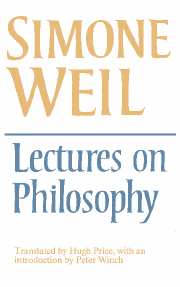5 - Miscellaneous topics and essay plans
Published online by Cambridge University Press: 09 December 2009
Summary
Self-knowledge
‘Know thyself.’
(Socrates)‘We only know what we appear to be.’
(Kant)Introduction:
A. One often speaks of the necessity of self-knowledge. But ‘Know thyself’ is ambiguous.
One must work out its different senses:
1. The ordinary senses are: (a) knowing oneself in order to change, to correct oneself. But that would be knowledge as a means, and Socrates was speaking of self-knowledge as an end; (b) knowing oneself in order to find out what one is capable of doing, to make good use of oneself; (c) knowing oneself in order to get to know human nature (Montaigne).
2. Besides this common way of thinking about it, ‘Know thyself’ was among the Greeks a precept which had become a proverb, and which was written up at the entrance to the temple at Delphi, which was a repository of all wisdom. What sense could this saying have had? It seems that it meant: ‘Why do you have to come and ask me about the secrets of nature, of the future? All you need to do is know yourself.’
3. Now: Socrates had taken this saying as a motto. The imperative form ‘Know thyself’ shows very well that it is an end in itself, not a means. For Socrates, it is self-knowledge in opposition to knowledge about external things thought of as the ultimate end of all thought.
- Type
- Chapter
- Information
- Lectures on Philosophy , pp. 190 - 221Publisher: Cambridge University PressPrint publication year: 1978



